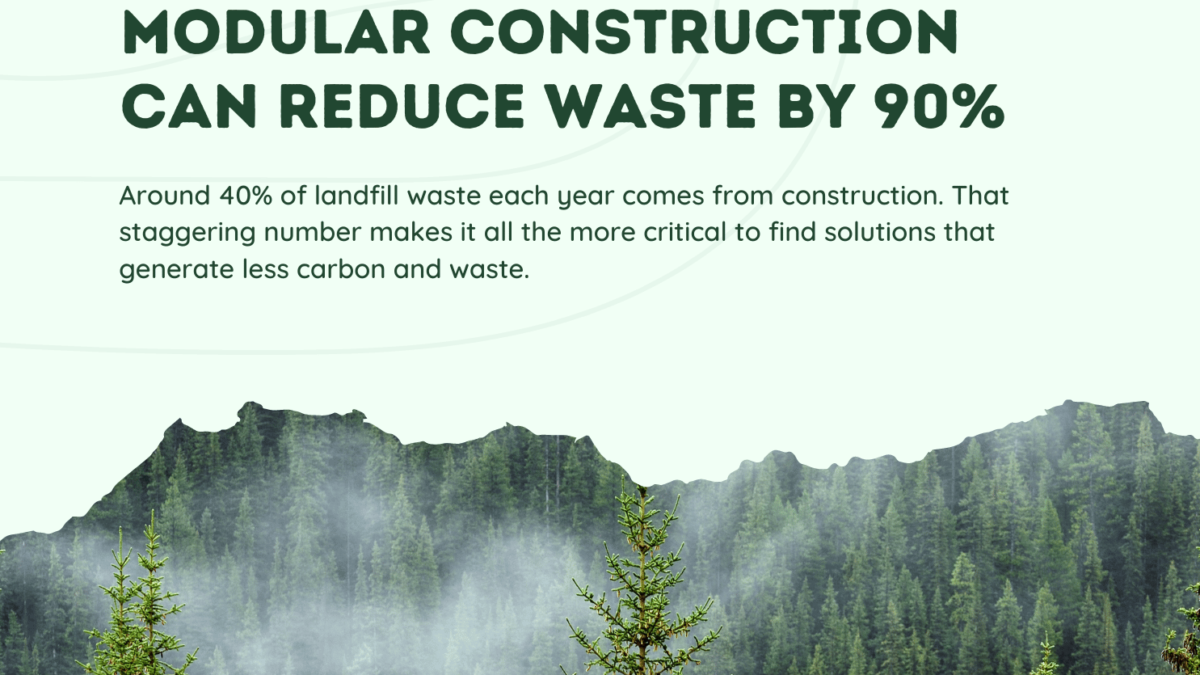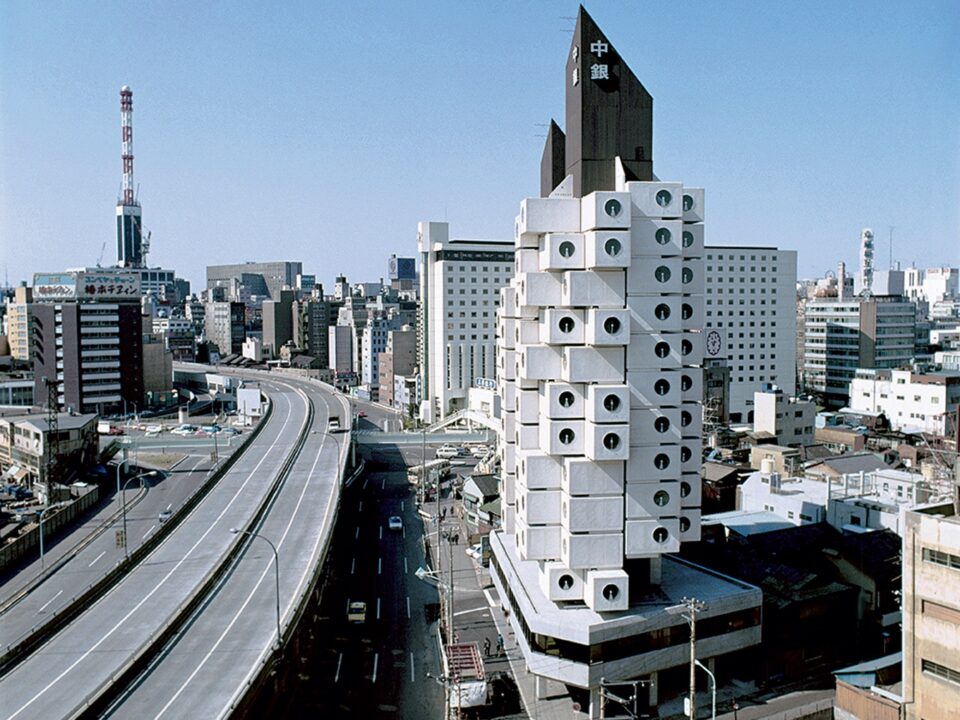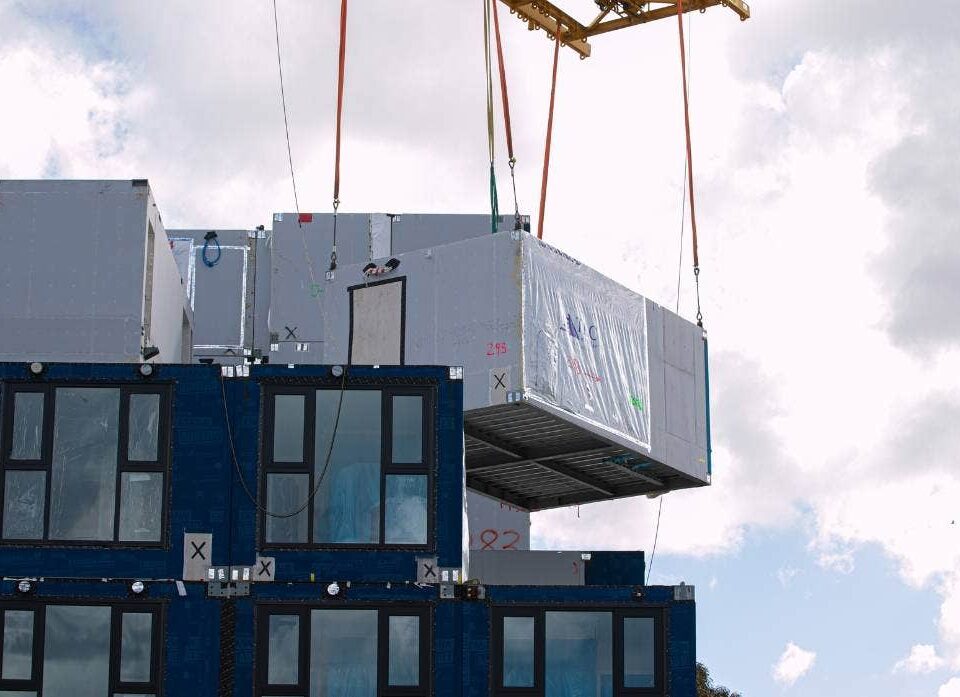
Buying vs. Building Your New Home
August 27, 2023In an era defined by heightened environmental awareness, the construction industry is experiencing a profound shift toward sustainable practices. Amid this transformative landscape, modular construction has emerged as a beacon of eco-friendliness, offering not only efficiency but also an array of compelling environmental advantages.
A Pervasive Challenge: Construction-Generated Waste
It's no secret that construction is a major contributor to waste accumulation. A staggering 40% of landfill waste originates from construction activities, presenting a dire need for innovative approaches that alleviate this burden. In the United States alone, commercial construction yields an average of 3.9 pounds of waste per square foot. Even as strides are made toward sustainability, a staggering 88 million tons of construction and demolition waste find their way into landfills annually.
Yet, the scope of waste extends beyond these grim numbers. The zero-waste movement seeks to revamp the entire supply chain, championing an ethos that eliminates waste at every juncture. Modular construction, with its off-site manufacturing prowess, stands as a vanguard in this endeavor, unraveling the threads of waste generation.
Efficacy of Off-Site Construction
Modular construction's efficacy in waste reduction is a testament to its off-site manufacturing process. By fabricating individual modules in controlled factory environments, this methodology allows for meticulous inventory management. Leftover materials are not consigned to landfills but repurposed for future projects, mitigating waste accumulation. Furthermore, the protection against moisture and weather-related damage is significantly enhanced within the controlled factory setting, ensuring materials retain their value over time.
Bridging the Gap Between Waste and Sustainability
The benefits of modular construction extend beyond waste reduction, painting a holistic picture of sustainability.
1. Exemplary Construction Quality: Modular construction's off-site manufacturing ensures superior quality. By sidestepping the pitfalls of on-site construction, such as moisture infiltration and suboptimal material handling, the modules boast impeccable quality and longevity.
2. Optimal Resource Utilization: The controlled environment of modular construction enhances resource efficiency. Precise material management drastically reduces waste and resource consumption, making a dent in the construction industry's environmental impact.
3. Alleviating Transportation Burden: Modular construction's hallmark is the seamless transportation of modules to the site. This minimizes transportation-related emissions, reduces pollution, and curbs the carbon footprint—underscoring the practice's commitment to environmental stewardship.
4. A Glimpse into the Future
As the clarion call for sustainable practices reverberates, modular construction stands as a resounding answer. Its waste-reduction acumen, stringent quality control, and optimized resource utilization make it a linchpin in creating environmentally conscious structures. Beyond the immediate benefits, modular construction paves the way for a harmonious coexistence between urban development and ecological preservation. As we embrace the possibilities presented by modular construction, we're not merely constructing buildings; we're building a future that thrives on the principles of sustainability.





